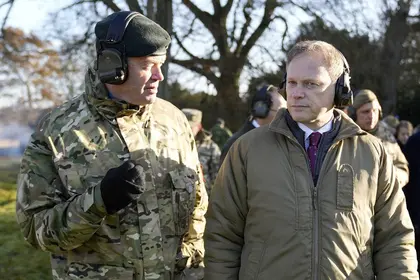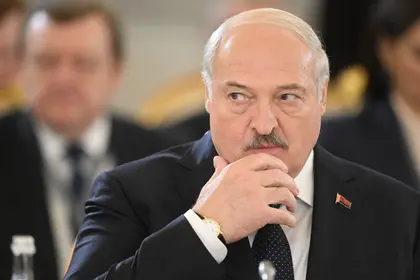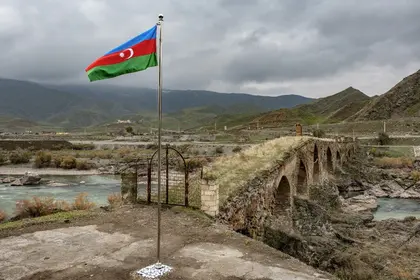General Sir Patrick Sanders, who served until June as the UK’s chief of the general staff, has likened the current geopolitical situation to 1939 and hinted that British forces lack the capability to handle a major conflict.
Sanders called Russia, Iran and China “the new Axis powers” and said they are more “interdependent and more aligned” than the Axis powers in WWII. He also told The Times that the third world war could break out in “five to 10 years” if unprepared, an estimation that echoed that made by the German Defense Minister Boris Pistorius.
JOIN US ON TELEGRAM
Follow our coverage of the war on the @Kyivpost_official.
“Most estimates will tell you that we've got somewhere between five and 10 years before Russia recapitalizes and is able to pose the sort of threat that it did before the Ukraine war,” Sanders said.
He said the key is to rearm and deter further aggression.
“If we take the right steps now, if we address the threats and gaps we have in our capability, if we modernize our armed forces, if we make society and the UK more resilient, that’s how we prevent it.
“If we do that, it’s a low likelihood. If we don’t, it increases the probability and it encourages Russia, China and Iran,” said Sanders.
Sanders also said the British military lacked the capability to launch operations like the invasion of southern Iraq in 2003 or even the Falkland Islands in 1982.

In Defense of Freedom: Now It’s Time for Some Clarity
“Could you scramble together the two brigades that took the Falklands? Yes, of course we could. But could we get them there? Could we have the task force that made it possible and sustain it? No,” he said.
He also told The Times that current British army stocks “put the hairs up on the back of your neck” without revealing the figures.
At the beginning of 2024, Sanders also cautioned the Britons to prepare for a land war and said the UK could not rely on its navy and air power after the British Ministry of Defence decided to cut its professional army from 82,000 to 73,000 by 2025.
Since Moscow launched its full-scale invasion in 2022, a number of nations – the Baltic states in particular – have posited that Russia’s ambition extended beyond Ukraine, and its success in the war would encourage further aggression from Moscow and lead to its direct confrontation with NATO members.
You can also highlight the text and press Ctrl + Enter










